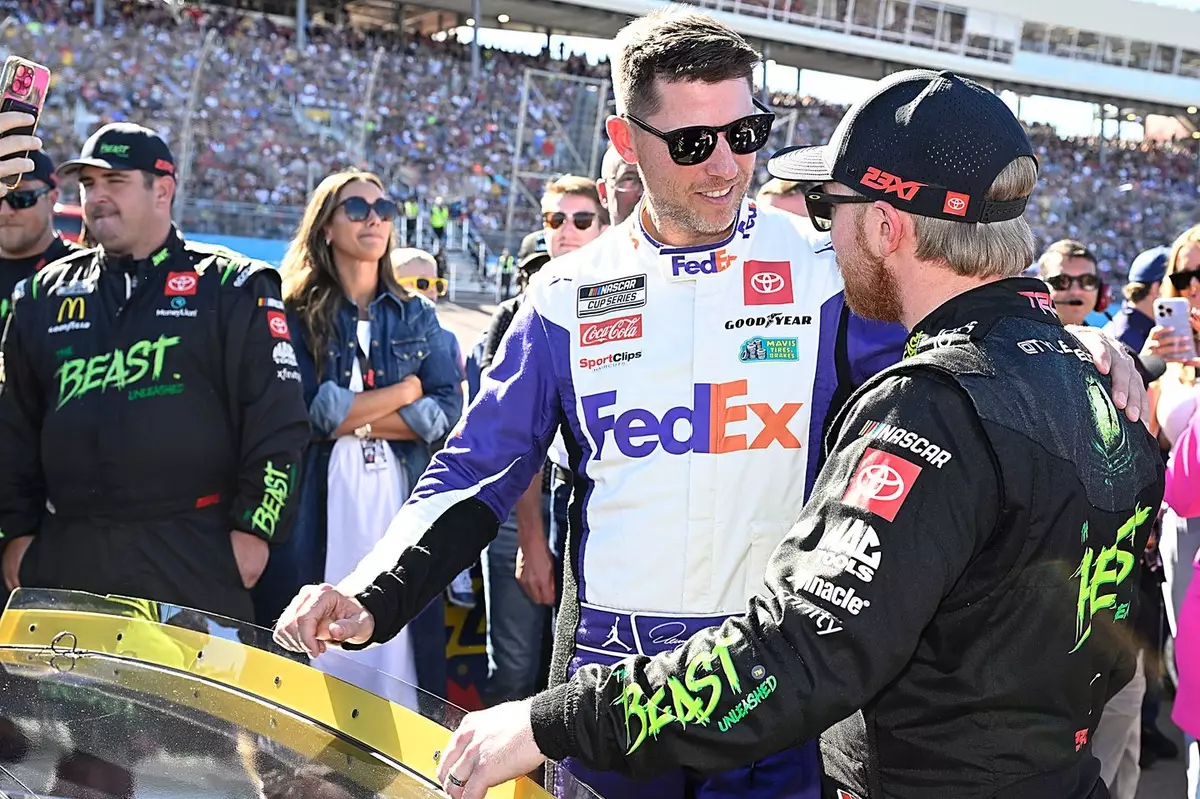In a landmark ruling, 23XI Racing and Front Row Motorsports (FRM) have been granted a preliminary injunction allowing them to retain their charters for the 2025 NASCAR season. This decision serves as a critical juncture in an ongoing antitrust lawsuit against NASCAR, involving complexities of legal rights and competitive equity. The implications of this case extend beyond just the teams involved; they carry significant ramifications for the future of stock car racing in America, igniting crucial debates about monopolistic practices within the sport.
The Nature of the Ruling and Preliminary Injunction
The court’s decision effectively challenges key segments of the 2025 Charter Agreement, particularly a release clause that restricts teams from pursuing antitrust claims against NASCAR. The importance of this ruling cannot be understated. In order for the teams to obtain the preliminary injunction, they had to demonstrate concrete concerns regarding their operational futures — namely, that they would likely suffer irreparable harm and that the legal action was justified. In their initial effort, the teams failed to convince the court of the pressing nature of their claims. However, with strategy refinement and shifting circumstances, 23XI and FRM formulated a stronger argument, leading to this week’s favorable ruling.
The crux of the legal strategy hinged on overcoming the court’s previous findings, where the risks were deemed speculative. By showcasing the need for certainty in competitive opportunities, particularly regarding driver contracts akin to that of Tyler Reddick, the teams illustrated that their situation was immediate and urgent, potentially threatening their rosters and competitive viability.
One pivotal element of the ruling is the court’s acknowledgment of NASCAR’s monopolistic authority over premier stock car racing. This perspective is essential as it provides legal backing to the core antitrust allegations leveled by the teams. The assertion that NASCAR possesses “100% market share” in this particular racing domain underscores the lack of alternatives available to teams and drivers, hence tightening NASCAR’s control over who succeeds in the highest echelons of the sport. This monopoly raises profound questions regarding competition and fair practice within the racing industry, suggesting that teams are significantly constrained in their operational choices.
The implications of the court’s finding extend beyond legal analysis into the market dynamics of American motorsports. If NASCAR is, indeed, the sole gatekeeper of top-tier racing, this could justify the teams’ claims of unfair business practices, and spur regulatory scrutiny in a sport that has traditionally been governed by its own rules.
For 23XI Racing and Front Row Motorsports, this ruling opens a crucial window of opportunity. With the ability to retain their charters, both teams can now proceed with expansions, including the potential acquisition of third charters from the collapsed Stewart-Haas Racing team. Such moves signify a pivotal moment where teams can diversify their operations, stabilize their competitive stances, and potentially secure a stronger financial footing in the NASCAR ecosystem.
As teams prepare for the future, the shift in landscape may deter existing cohesion among NASCAR teams, igniting an adversarial relationship as they navigate the legal and competitive complexities of the season ahead. The uncertainty surrounding drivers’ contracts and the general landscape poses significant challenges, wherein the risk of attrition may affect team strategies moving forward.
While the ruling currently favors the teams, NASCAR retains the right to appeal, which can change the legal equation once again. Hence, as teams brace for the upcoming season, the looming possibility of an appeal introduces another layer of unpredictability. The outcome of this legal combat will dictate how stock car racing evolves in the U.S. and raise new considerations regarding governance, fairness, and competitive practices in a sport that thrives on speed and precision yet finds itself embroiled in a complex legal battle.
The ruling on charters for 23XI Racing and Front Row Motorsports serves not only as a pivotal moment for these teams but also as a catalyst for broader discussions regarding the future of NASCAR and professional motorsports at large. As legal arguments unfold and choices are made, the motorsport world watches closely, aware that the ramifications will shape racing for years to come.


Leave a Reply